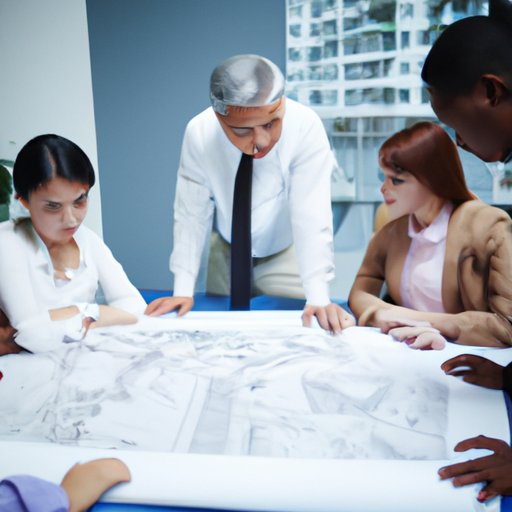Exploring Urban Planning: The Key to Addressing Modern Environmental and Social Challenges
Urban planning is an essential tool in addressing the many environmental and social challenges that cities face today. From reducing carbon emissions to creating more accessible housing options, urban planning helps create more sustainable and equitable communities for everyone. In this article, we will explore the basics of urban planning, its importance in modern society, and the many ways it shapes the future of cities. We will also discuss the comprehensive guide to understanding the urban planning process and the role of urban planning in solving environmental and social challenges.
The Basics of Urban Planning: What You Need to Know
Urban planning is essentially the process of designing, managing, and shaping the physical and social environment of cities and regions. It involves setting goals for the development of urban areas, as well as identifying the types of land use that best meet those goals. This process relies heavily on zoning laws and land use regulations, which provide guidelines for the development of specific areas and ensure that the needs of various stakeholders are met.
The key players in the urban planning process are government agencies, planners, and community groups. While government agencies like the Department of Housing and Urban Development (HUD) play a vital role in creating policies and regulations, planners implement these policies and work with community groups to ensure that the needs of various stakeholders are met.

The Importance of Urban Planning in Modern Society
Urban planning has a rich history dating back to the 19th and 20th centuries when urbanization and industrialization were on the rise. Rapidly growing cities faced various challenges, such as overcrowding, pollution, and a lack of basic utilities and services. It was during this time that the need for urban planning became clear as planners sought to address these challenges and create more sustainable, livable cities.
Today, urban planning remains just as important, if not more so. It helps address various environmental and social issues, such as climate change, economic inequality, and urban sprawl. By ensuring that cities are designed in a way that meets the needs of all residents, urban planning can help create more equitable and sustainable societies.
How Urban Planning Shapes the Future of Cities
Urban planning can have a significant impact on the future of cities. From infrastructure development to affordable housing policies, urban planning helps create the physical and social environment that influences our daily lives. Some successful examples of urban planning projects include the revitalization of city centers in Barcelona and Copenhagen and the implementation of green roofs and other sustainable infrastructure in Berlin and Tokyo.
A Comprehensive Guide to Understanding the Urban Planning Process
The urban planning process involves several steps, including data analysis, public consultation, and plan implementation. The first step in the process is to gather data on the area in question, including demographics, land use, and economic data. Planners also consult with community groups and stakeholders to understand their needs and concerns. Once a plan has been developed, it is presented to the public for feedback and input, and then implemented in a phased approach. However, the process is often not straightforward, and challenges and controversies can arise at any stage of the process, including issues related to funding, conflicting goals, and conflicting stakeholder interests.
The Role of Urban Planning in Solving Environmental and Social Challenges
Urban planning is an essential tool in addressing various environmental and social challenges that cities face today. These challenges include air pollution, traffic congestion, and housing shortages. Through innovative policies and design, urban planning can help address these challenges and create more sustainable and equitable cities. For example, urban planners can implement policies that encourage green transportation options like biking and walking, or create incentives for developers to build more affordable housing options.
Conclusion
Urban planning is a complex process that plays a vital role in creating sustainable and equitable societies. Through effective planning, cities can address various environmental and social challenges, such as climate change, economic inequality, and urban sprawl, and create more livable and thriving communities for everyone. To get involved in urban planning efforts in your community, consider attending public meetings, joining a local community group, or getting in touch with government agencies and planners in your area.
